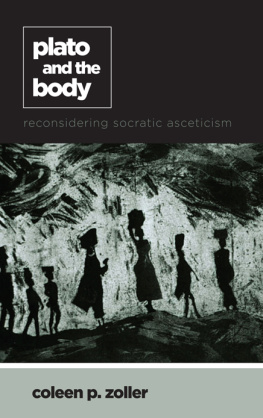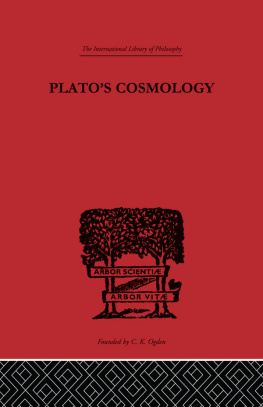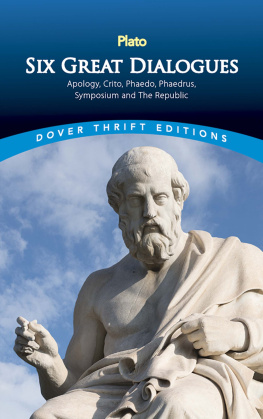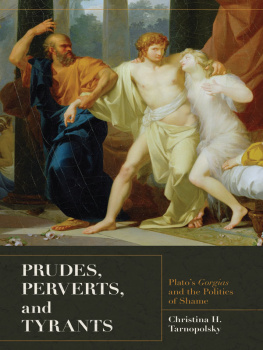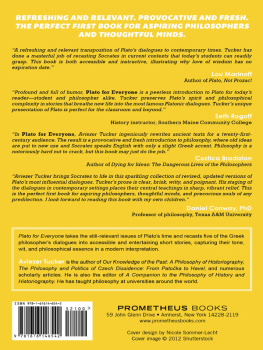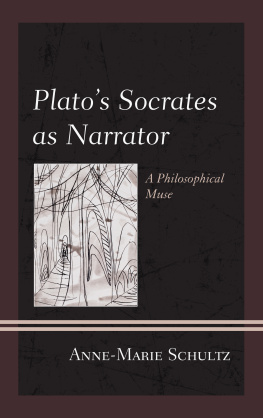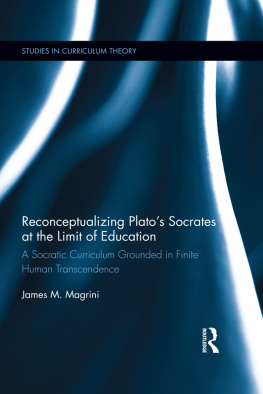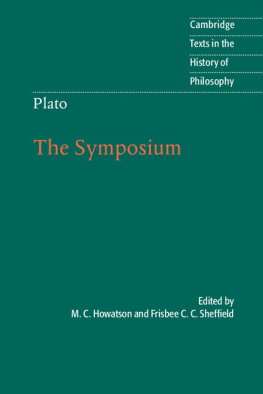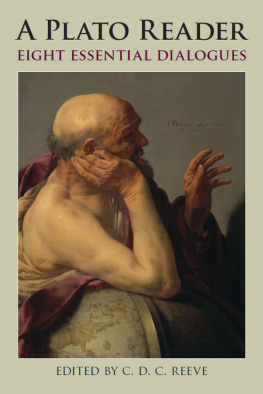Plato and the Body
SUNY series in Ancient Greek Philosophy
Anthony Preus, editor
Plato and the Body
Reconsidering Socratic Asceticism
Coleen P. Zoller
Cover art: Stavros Kotsireas, The Refugees, 1988. Reprinted with permission.
Published by State University of New York Press, Albany
2018 State University of New York
All rights reserved
Printed in the United States of America
No part of this book may be used or reproduced in any manner whatsoever without written permission. No part of this book may be stored in a retrieval system or transmitted in any form or by any means including electronic, electrostatic, magnetic tape, mechanical, photocopying, recording, or otherwise without the prior permission in writing of the publisher.
For information, contact State University of New York Press, Albany, NY
www.sunypress.edu
Library of Congress Cataloging-in-Publication Data
Names: Zoller, Coleen P.
Title: Plato and the body : reconsidering socratic asceticism / Coleen P. Zoller.
Description: Albany : State University of New York Press, [2018] | Series: SUNY series in ancient Greek philosophy | Includes bibliographical references and index.
Identifiers: LCCN 2017044461 | ISBN 9781438470818 (hardcover : alk. paper) | ISBN 9781438470832 (ebook)
Subjects: LCSH: Plato. | Asceticism. | Socrates.
Classification: LCC B398.A8 Z65 2018 | DDC 184dc23
LC record available at https://lccn.loc.gov/2017044461
10 9 8 7 6 5 4 3 2 1
For Jeff Turner,
my Socratic interlocutor, mentor, and friend
Contents
Acknowledgments
M y greatest debt is to Jeff Turner, who graciously read innumerable drafts and shared incredibly insightful guidance at every stage of my project. I also wish to thank the following mentors, colleagues, students, and friends for helpful feedback as I developed my manuscript: Richard Patterson, Roslyn Weiss, Mitch Miller, William Johnson, Tony Long, Tom Chance, Ed Lee, Tarik Wareh, Amy Coplan, Carol Wayne White, Sarah Farrant, Alissa Packer, Rabbi Nina Mandel, James Powers-Black, Karla Bohmbach, Lynn Palermo, Brian Johnson, Emily Anderson, Tom Stanley, students in my Plato seminars at Susquehanna University, audiences at various conferences and colloquia, and my anonymous readers and the editors at SUNY Press. I am particularly grateful to Courtney Radel and Jessica Gilchrist for their work as summer research assistants and to Susquehanna University for the 201416 grants that made their research possible. And much gratitude to Courtney Radel for compiling the index. Finally, many thanks to pictorial artist Stavros Kotsireas for permission to use his etching The Refugees as cover art.
Some pages of already published work appear here. I would like to thank the following for permission to reprint this material: Cambridge Scholars Press for excerpts from Zoller (2007) in
Chapter 1
Interpreting Asceticism in Plato
1.1 Loving Wisdom and Living in a Body
M any commentators have assumed that Plato is responsible for originating the view that loving wisdom is incongruous with being embodied. For instance, many feminists are critical of what they call Platos somatophobia and take his dualistic metaphysical worldview to be incompatible with feminism. However, we are missing something about his dialogues when we accuse Plato of beginning the tradition that suppresses the importance of the physical in the life of the philosopher or any human being. My primary aim in this project is to offer insight into Platos nuanced attitude toward the physical universe in general, and human bodies in particular, because this pertains to his understanding of what philosophy is and what philosophers do. As Plato developed what we now call philosophy, he set a framework that involves analytical thought in addition to a particular kind of lifestyle. Yet, on account of a caricature of his views concerning the physical, Plato is often named as the originator of an embarrassing view of embodied life.
One of Platos main goals is to use his character Socrates
Who is Platos Socrates? This book will remind us that he is a philosopher deeply engaged in worldly matters, who uses his body to enjoy eating (Smp. 220a) and drinking (Smp. 220a), to sleep peacefully (Crt. 44a; Prt. 310b-c; Smp. 223d), to have sexual intercourse, to create a family (Ap. 34d; Crt. 60a), to participate in democracy, serving his community as a gadfly, a soldier (Smp. 219e; Chrm. 153b-d), and a member of the Council (Ap. 32b-c), to stand up to tyranny (Ap. 32d-e), to look after his circle of friends, to walk daily to the agora, to stroll the outskirts of Athens and observe the beauty of nature (Phdr. 229a-b), to travel to Piraeus for a religious festival (R. 327a), to adore beautiful people (Smp. 212c, 216d, 218e; Prt. 309a-b, 316a; Chrm. 153d-154d, 155d), to flirt (Phdr. 234d, 237a-b, Smp. 213d, Chrm. 156a), to be in love with Alcibiades (Grg. 481d), to follow his erotic passion for ideas and virtues. Is this down-to-earth life consistent with his asceticism?
For the sake of uncovering Platos vision of how human beings who want to be wise and good should be disposed toward the physical world and the human body, we must understand Platos answers to the following questions: What attitudes and dispositions do wisdom lovers have? How exactly do philosophers care for the soul, and what treatment of the body does that psychic care
In this introductory chapter, I will compare and contrast two interpretations of asceticism; briefly examine some consequences of misinterpreting Socratic asceticism, especially for women, people of color, the other animals, and nature itself; examine the analogical reasoning Plato relies on to advance innovative claims; consider the transformation of vernacular that arises out of Platos use of analogical reasoning; call attention to Platos use of pedagogical irony; and lay out the plan for the other chapters.
1.2 Two Interpretations of Socratic Asceticism
Conceiving of the soul as what animates the material stuff of the body causes Plato to consider the soul a human beings true self. As a result, he is deeply concerned with how one ought to think of and treat the soul. Nevertheless, throughout the dialogues Plato makes clear that the question of how one should be disposed toward the soul is very much intertwined with the question of how one ought to handle the body, especially given that Platos dialogues indicate that the largest aspect of the soul, the appetite, is charged with wanting what the human body needs to survive. Some of the appetites pleasures come from restoration in the body, and although appetite belongs to the soul, the appetite in particular, and soul in general, could not be more essentially connected with the body. It is misguided to think the soul can be properly cared for while the body is renounced, and I will demonstrate that Plato does not make this mistake as some critics have thought.
A widespread and popular characterization of Plato assumes that his dualistic metaphysics requires the renunciation of all things physical, including the desires and needs of the human body. Plato variously describes the relation between the soul and the body as a prisoner in a cage (Phd. 82e3; Cra. 400c), a tomb (

